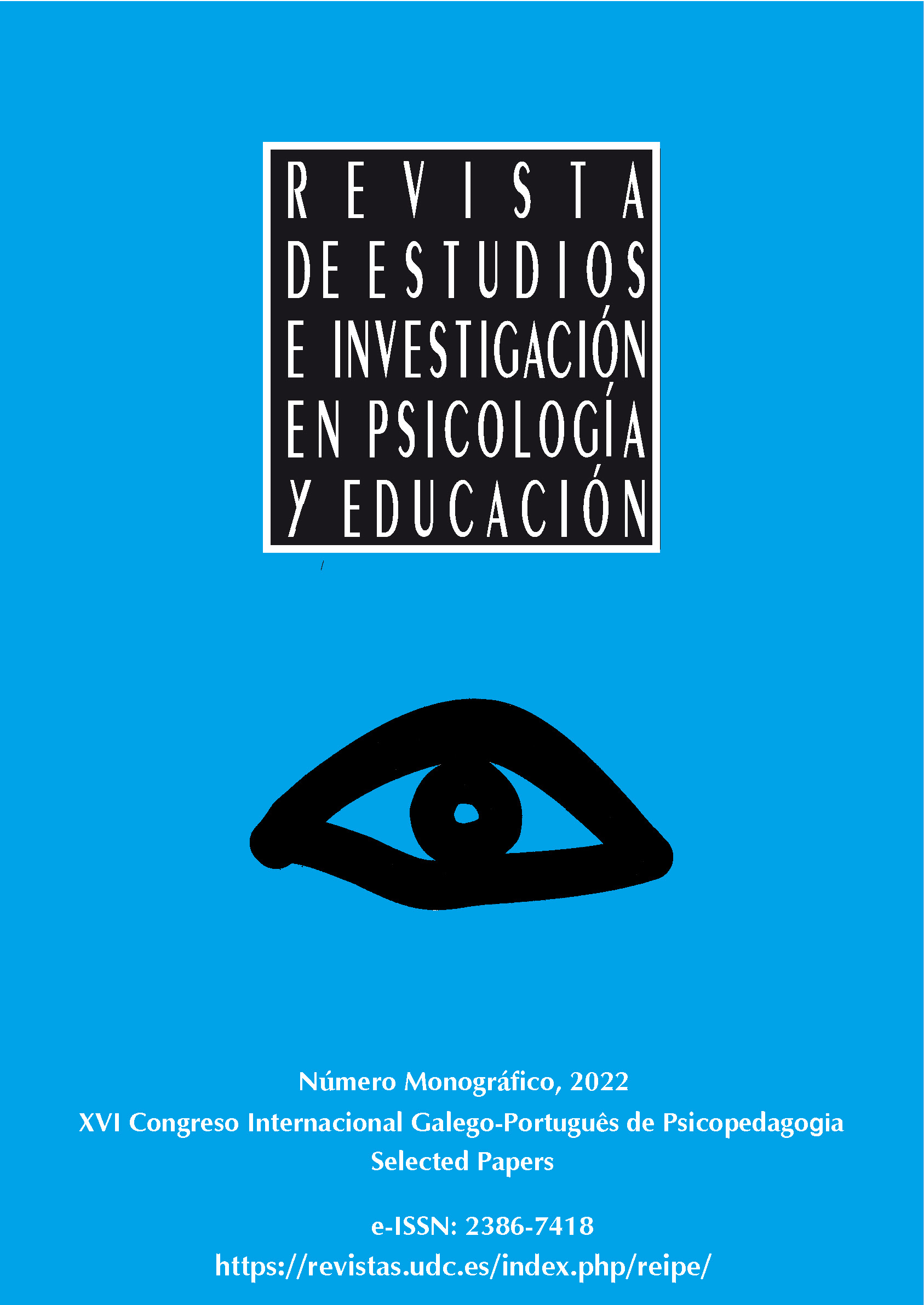Family resilience in the context of the Walking in Family program
DOI:
https://doi.org/10.17979/reipe.2022.9.0.8897Keywords:
child protection, family resilience, family reunification, intervention programs, residential careAbstract
Family reunification is a complex process that begins with the residential care of the child and/or young person in an institution and includes the period after their return home, and can contribute for the success of protection measures. The present study aimed to analyse the dynamics that generate processes of resilience in families after the implementation of the “Walking in Family Program”, which intends to give support to family reunification through the promotion of parenting skills during institutionalization. A qualitative, descriptive and retrospective case study was developed. The non-probabilistic sample consisted of 4 families, 5 parents and 6 children/young people who left foster care in 2019 and were able to reunify. The participation of families in the program confirmed the strengthening of resilience processes in the relational system of parents and children triggered by the understanding, training and empowerment raised in the different stages of the protection measure. The conceptual association of two theoretical models of family resilience of the authors Froma Walsh and Lietz and Strength, enabled us to identify different individual and family strengths and resources in crisis management and specific responses to the needs of families at different stages since the children’s entry in residential care to their returning home. The results reinforce the importance of socio-educational programs that reinforce and encourage dimensions that promote healthy aspects that build resilience in families. These elements could guide interventions for safe and stable family reunification.
Downloads
Publication Facts
Reviewer profiles N/A
Author statements
Indexed in
-
—
- Academic society
- N/A
- Publisher
- Universidade da Coruña, Servizo de Publicacións
References
Axford, N., Elliott, D.S., & Little, M. (2012). Blueprints for Europe: Promoting evidence-based programmes in children’s services. Psychosocial Intervention, 21(2), 205-214. https://doi.org/10.5093/in2012a11
Balsells, M. À., Pastor, C., Amorós, P., Mateos, A., Ponce, C., & Navajas, A. (2014). Child Welfare and Successful Reunification through the Socio-Educative Process: Training Needs among Biological Families in Spain. Social Sciences, 3(4), 809–826. https://doi.org/10.3390/socsci3040809
Balsells, M. À., Pastor, C., Amorós, P., Fuentes-Peláez, N., Molina, M. C., Mateos, A., Vázquez, N. (2015). Caminar en familia: Programa de competencias parentales durante el acogimiento y la reunificación familiar. Madrid: Ministerio de Sanidad, Servicios Sociales e Igualdad.
Bardin, L. (2011). Análise de conteúdo. Edições 70.
Delgado, P., & Gersão, E. (2018). O acolhimento de crianças e jovens no novo quadro legal. Novos discursos, novas práticas? Análise Social, 226, (1),112-134.
Fixsen, D., Naoom, S., Blase, K., Friedman, R., Wallace, F. (2005). Implementation Research: A Synthesis of the Literature. Tamps, FL: University of South Florida, Louis de la Parte Florida Mental Health Institute, National Implementation Research Network.
Gottfredson, D. C., Cook, T. D., Gardner, F. E. M., Gorman-Smith, D., Howe, G. W., Sandler, I. N., & Zafft, K. M. (2015). Standards of Evidence for Efficacy, Effectiveness, and Scale-up Research in Prevention Science: Next Generation. Prevention Science, 16(7), 893-926. https://doi.org/10.1007/s11121-015-0555-x
Gibbs, G. (2007). Analyzing qualitative data. SAGE Publications Ltd.
Instituto da Segurança Social, I. P. (2020). CASA 2019 - Relatório de Caracterização Anual da Situação de Acolhimento das Crianças e Jovens. https://www.seg-social.pt/publicacoes?kw=CASA
Lietz, C. A., & Strength, M. (2011). Stories of Successful Reunification: A Narrative Study of Family Resilience in Child Welfare. Families in Society, 92(2), 203–210. https://doi.org/10.1606/1044-3894.4102
Marotti, J., Galhardo, A. P. M., Furuyama, R. J., Pigozzo, M. N., Campos, T. N., Laganá, D. C. (2008). Amostragem em pesquisa clínica: tamanho da amostra. Revista de Odontologia da Universidade Cidade de São Paulo, 20 (2), 186-194.
Minayo, M. C. S., Costa, A. P. (2018). Fundamentos Teóricos das Técnicas de Investigação Qualitativa. Revista Lusófona de Educação, 40, 139-153. https://revistas.ulusofona.pt/index.php/rleducacao/article/view/6439
Walsh, F. (1996). Family resilience: A concept and its application. Crisis and challenge. Family Process, 35, 1–14. https://doi.org/10.1111/j.1545-5300.1996.00261.x
Walsh, F. (1998) Strengthening family resilience. The Guilford Press.
Walsh, F. (2005). Fortalecendo a resiliência familiar. Editora Roca.
Walsh, F. (2016). Applying a Family Resilience Framework in Training, Practice, and Research: Mastering the Art of the possible. Family Process, 55, 616-632. https://doi.org/10.1111/famp.12260
Walsh, F. (2016a). Family resilience: a developmental systems framework [
Resiliência familiar: uma estrutura de sistemas de desenvolvimento]. European Journal of Developmental Psychology. 1-12. https://doi.org/10.1080/17405629.2016.1154035
Yunes, M. A. M. (2003). Psicologia positiva e resiliência: O foco no indivíduo e na família. Psicologia em Estudo, 8, 75-84. https://doi.org/10.1590/S1413-73722003000300010
Yunes, M. A. M. (2015). Dimensões conceituais da resiliência e suas interfaces com risco e proteção. In S. Murta, C. Leandro-França, K. Brito, & L. Polejack (Orgs), Prevenção e Promoção em Saúde Mental: Fundamentos, Planejamento e Estratégias de Intervenção (pp. 93-112). Synopisis.
Downloads
Published
How to Cite
Issue
Section
License
The papers published in this journal are licensed under a Creative Commons Attribution-ShareAlike 4.0 International License.
Authors are the holders of the exploitation rights (copyright) of their work, but grant the right of first publication to the Revista de Estudios e Investigación en Psicología y Educación, which may publish in any language and format as well as publish and distribute their whole or partial content by any technologically available means and via data base.
Authors are allowed and encouraged to disseminate the articles accepted for publication on personal or institutional websites, before and after their publication, provided it is clearly stated that the work is in this journal and all bibliographic data are provided along with access to the document, preferably through the DOI (if it is indispensable to use a pdf, the final version formatted by the journal should be used). In the case of articles resulting from funded studies or projects, this will be done within the deadlines and terms established by the supporting organisation(s) of the published research.




